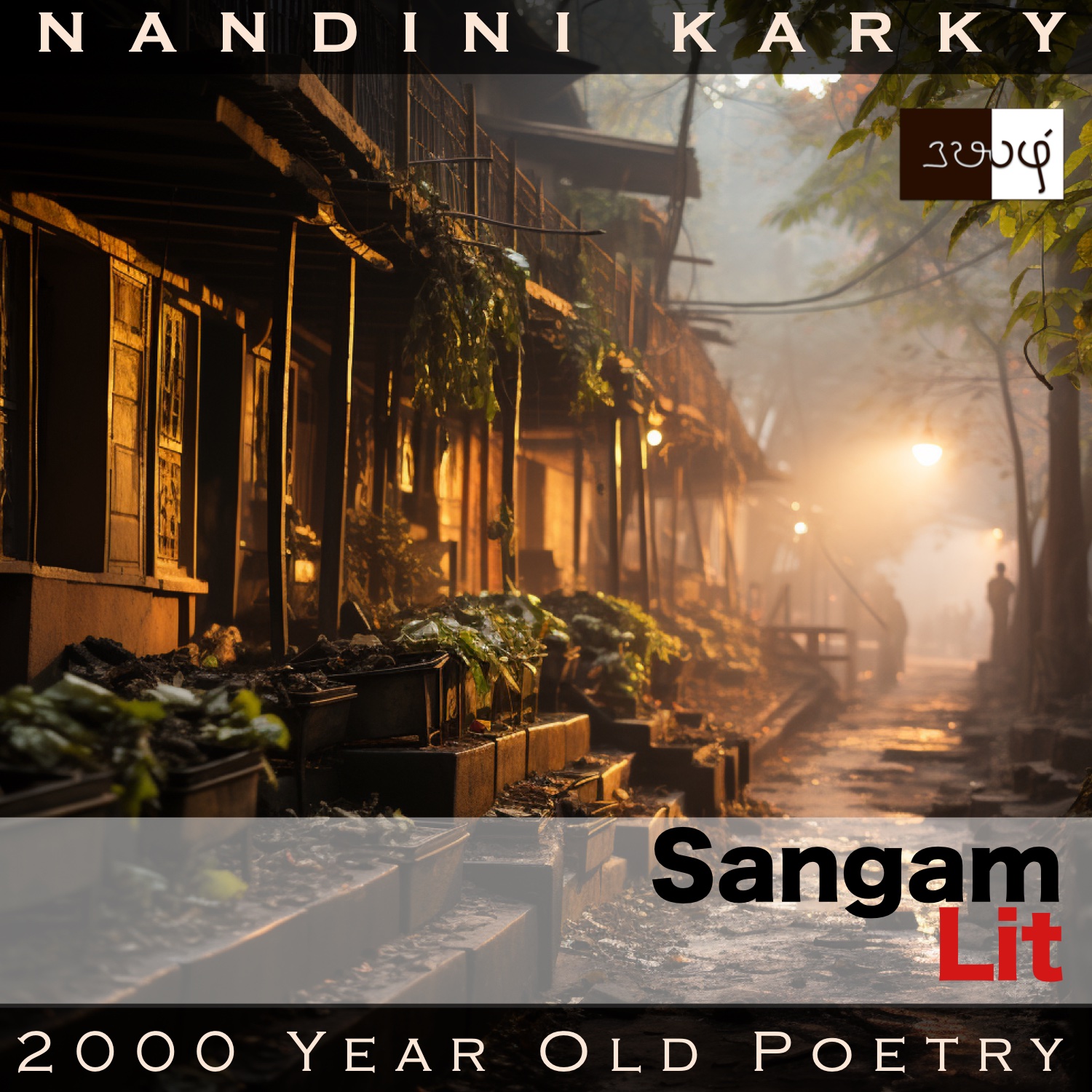Podcast: Play in new window | Download
Subscribe: Apple Podcasts | Spotify | Amazon Music | Android | iHeartRadio | TuneIn | RSS | More
In this episode, we observe the reaction to a person’s absence, as portrayed in Sangam Literary work, Puranaanooru 296, penned by the poet Vellai Maaranaar. The verse is situated in the category of ‘Vaagai Thinai’ or ‘Victory’ and talks about the virtue of a warrior.

வேம்பு சினை ஒடிப்பவும், காஞ்சி பாடவும்,
நெய்யுடைக் கையர் ஐயவி புகைப்பவும்,
எல்லா மனையும் கல்லென்றவ்வே;
வேந்து உடன்று எறிவான்கொல்லோ
நெடிது வந்தன்றால் நெடுந்தகை தேரே?
A tiny song bringing alive a village where warriors lived. The poet’s words can be translated as follows:
“Breaking neem twigs, singing kaanji tunes, spreading mustard smoke with ghee in hand, in all the houses around, there’s uproar. He’s probably fighting till the enemy king is killed, for his tall and noble chariot is delayed in returning!”
Let’s delve into the details. The poet is said to speak in the voice of a mother, listing the events in houses around here. There’s a lot of commotion everywhere with helpers and women rushing to bring neem twigs, singing a particular melody and also spreading the smoke of ghee-roasted mustard. If we rewind a little to Puranaanooru 281, we can recollect that all these activities signify that there’s a wounded soldier at home and these are efforts to make him recover.
Returning to this verse, we find a mother remarking that it looks like her son won’t return until he has killed the enemy king and decimated his army entire. She comes to this conclusion because his chariot alone has not yet returned home. A verse that projects immense trust on a warrior’s skill and determination on one hand and a hope that he will return successfully on the other. Indeed, there’s nothing like positivity to face the anxiety of the present!




Share your thoughts...